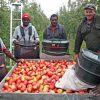Jobs in USA
Multiple Farm Workers Needed in the United States
Farm workers seem to have become the unsung heroes in sustaining everyday American life. They are a major reason why grocery stores are stocked, and families can enjoy fresh, affordable produce year-round. They plant, cultivate, and harvest crops while also handling livestock and maintaining farm equipment. Immigrants make up a significant portion of the agricultural workforce, often filling roles that U.S. citizens are unwilling to take due to the job’s physical demands.
Immigrant farmworkers bring not only their labor but also generations of agricultural knowledge. Yet, their contributions are often overlooked despite being the backbone of an industry that feeds millions. For foreign nationals looking to work in the U.S., farm jobs present an accessible opportunity. These roles typically involve long hours outdoors, using hand tools, operating farm machinery, and performing repetitive tasks.
Requirements for Farm Workers
Most farm jobs do not require formal education, making them ideal for immigrants seeking employment without a degree. However, workers often spend long hours bending, lifting, and performing repetitive motions. Many positions require basic agricultural skills, such as operating machinery, handling pesticides safely, or identifying crop diseases. Employers look for candidates who are reliable, hardworking, and able to work in extreme weather conditions.
Many workers are immigrants, often hired through programs like the H-2A visa. The most important qualification is meeting visa requirements, which include a job offer from a U.S. farm, a clean background check, and compliance with seasonal work limitations. Teamwork, punctuality, and safety awareness are crucial, as farms operate on tight schedules. Positions involving equipment operation, irrigation management, or farm supervision also have stricter requirements.
Visa Options for Farm Workers
Finding visa sponsorship as a farm worker is more accessible than in other industries. This is thanks to established agricultural work programs. The main visa options include:
- The H-2A visa is the most common work visa for farm laborers. It allows foreign workers to enter the U.S. for seasonal agricultural jobs.
- Some large farms and agribusinesses sponsor farm workers for permanent residency under the EB-3 visa (Other Workers) category. This option is less common.
- Under NAFTA/USMCA, Canadian and Mexican citizens can qualify for farm-related roles under specific conditions. The TN visa is renewable indefinitely.
- Some large agricultural firms also sponsor long-term farm workers for green cards, especially in areas experiencing chronic labor shortages. Additionally, undocumented farm workers may qualify for immigration relief.
- Many farm workers often gain U.S. entry through the Diversity Visa Lottery or family-sponsored green cards.
Why Work as a Farm Worker in the U.S.?
1. No Formal Education or English Proficiency Required
Unlike many other industries, farm work does not require college degrees, technical certifications, or fluent English skills. This makes it accessible to immigrants, especially those newly arriving in the U.S. Employers typically provide on-the-job training, allowing workers to gain practical agricultural skills without prior experience. For many, farm labor becomes a stepping stone to higher-paying roles in agriculture.
2. High Demand & Steady Employment
The U.S. agricultural sector primarily relies heavily on farm labor. This makes it a stable industry with continuous job openings. Crops like fruits, vegetables, and nuts require seasonal harvesting, and livestock farms need year-round maintenance. Immigrant workers, especially those on H-2A visas, fill a critical labor gap. With the decline in domestic farm labor, employers are increasingly seeking foreign workers to provide long-term job security.
3. Opportunities for Higher Earnings & Overtime Pay
Farm wages generally start at minimum wage. However, many of these jobs offer overtime pay and productivity bonuses. Workers paid by the piece, such as fruit pickers, can earn significantly more by increasing their output. Additionally, some farms offer end-of-season bonuses, housing stipends, and transportation allowances. Those who develop specialized skills, such as operating heavy machinery or managing irrigation systems, can qualify for higher-paying supervisory roles over time.
4. Pathways to Legal Residency & Work Visas
The H-2A temporary agricultural visa provides a legal work pathway for foreign workers seeking farm jobs in the U.S. While it is a seasonal visa, many workers return annually, building long-term employment relationships with farms. In some cases, farm owners may sponsor workers for permanent residency through employer petitions. Additionally, proposed immigration reforms often prioritize farm workers as essential labor.
5. Access to Free or Subsidized Housing
Many farms provide free or low-cost on-site housing for their workers, which significantly reduces living expenses. This is especially common for seasonal workers on H-2A visas, who receive dormitory-style accommodations or shared housing units. Some large farms even offer family housing options that allow workers to live with their spouses and children while employed. Having employer-provided housing eliminates the need to pay high city rent.
Salary Expectations for Farm Workers
Farm worker wages vary based on location, season, and job type. Hourly wages typically range from $13 to $20, with specialized roles (such as tractor operators or irrigation managers) earning higher rates. The average annual salary for farm workers falls between $30,000 and $40,000. However, some earn more based on productivity-based pay systems.
Workers involved in organic farming, specialty crops, or high-value exports can earn more. This is particularly true in states like California, Florida, and Washington, where agricultural wages are higher. Additionally, farm workers may receive housing benefits, transportation allowances, and performance-based bonuses, increasing their overall compensation.
Common Challenges In Applying As A Farm Worker
Applying for any agricultural job in the U.S. presents some challenges. This is especially true for immigrants who must navigate work visa requirements, rigorous on-the-job training, and competition. However, understanding these challenges can help applicants prepare effectively and improve their chances.
Seasonal Work and Job Instability
One of the biggest challenges in agriculture is the seasonal nature of farm jobs. Many positions are temporary, lasting only a few months until crops are harvested. This forces workers to move frequently, seeking employment on different farms or relying on off-season jobs. Those on H-2A visas must return to their home countries once their contract ends, creating financial uncertainty between work seasons.
Physically Demanding Labor
Farm work is one of the most physically exhausting jobs. It requires long hours of bending, lifting, and repetitive motions. Workers often endure extreme weather conditions, such as scorching heat, freezing temperatures, and heavy rain, without adequate shelter. Picking fruits, harvesting vegetables, and tending livestock involve strenuous movements that can lead to chronic back pain, muscle fatigue, and joint injuries.
Exposure to Pesticides and Harsh Chemicals
Farmworkers frequently handle pesticides, fertilizers, and other agricultural chemicals. Despite federal safety regulations, many workers experience skin irritation, respiratory issues, and long-term health complications due to repeated exposure. Protective gear is not always provided, and many workers are unaware of proper safety protocols. Prolonged exposure to these chemicals has been linked to some cancer and neurological disorders.
Low Wages and Lack of Benefits
While some farm jobs offer productivity-based earnings, many workers are paid minimum wage with no health insurance, retirement benefits, or paid leave. Due to piece-rate pay structures, workers must push themselves to their physical limits. Many farm workers also do not qualify for social security, unemployment benefits, or workers’ compensation. This can leave them financially vulnerable in case of injury, illness, or job loss. Additionally, undocumented workers frequently face wage theft and exploitation.
Limited Legal Protections and Worker Rights
Agricultural workers are often excluded from key labor protections, such as overtime pay, collective bargaining rights, and standard workplace safety regulations. Many farm workers fear speaking out against unfair treatment. Employers often retaliate by withholding wages or reporting undocumented workers to immigration authorities. Without strong legal protections, farm workers frequently endure unsafe conditions, long hours without rest breaks, and exploitative contracts.
How To Apply for Farm Worker Jobs in the U.S.
A key step is to search and apply for these farm worker jobs or other agricultural jobs on reputable job platforms. Many employers, particularly those in the H-2A visa program, explicitly list visa sponsorship or seasonal work opportunities in their postings. Additionally, reaching out directly to local farms, agricultural cooperatives, or labor contractors can uncover unadvertised opportunities. Major agricultural states like California, Florida, Texas, and Washington are hotspots for farm work. These states often provide seasonal housing and transportation for workers.


















